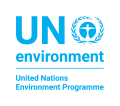Project Database



A growing number of African countries are amongst the fastest growing economies worldwide. Still the level and speed of lifting a vast majority of the African people from poverty remains low. A key question, therefore, is how the growth can transform the African economies towards efficient and competitive engines that...

In Mexico, the pollution created within cities and by the industrial sector is currently estimated to cost the economy almost seven per cent of its gross domestic product due to the environmental damage it causes. Largely unsustainable consumer behaviour and environmentally unfriendly manufacturing processes are adding on to these environmental...
Many developing countries and emerging economies are currently defining country-specific strategies for their economies to become more inclusive, climate-friendly, resilient and resource-efficient. However, governments often face strong economic and social pressure, and transformational policies are difficult to advocate – unless proven socially and economically viable.
This is where the project...

The project “Enhancing South-South Cooperation – Building the Capacity of Developing Countries to Promote Green Economies” was based on the often-articulated wish of developing countries to exchange and share good practices with other countries of the South. The project had two key objectives. The first was to facilitate knowledge exchange...
Through a regional assessment ESCAP identified the decentralized neighbourhood- based compost plants developed by Waste Concern, an NGO in Bangladesh, as an approach that met the above criteria. Adapting this approach, ESCAP and Waste Concern undertook two successful pilot projects in Sri Lanka and Viet Nam.
Building on these prior...
In response of the needs of policy makers and stakeholders in the Asia-Pacific region, ESCAP has partnered with several organisations to offer interactive, on-line training courses related to Green Growth.
The Green Growth on-line e-Learning facility takes an integrative, multidisciplinary approach towards promoting environmentally-sustainable economic growth. Moreover, the facility is...

The overarching development objectives of the proposed Carbon Finance project are to: avoid generation of methane emission from biodegradable wastes; improve cultivated land by using compost as a natural soil conditioner.
The Carbon Finance project will provide additional support for achieving the following objectives and benefits, namely to; reduce carbon...

The objectives of the National Ganga River Basin Project for India are to support the National Ganga River Basin Authority (NGRBA) in: (a) building capacity of its nascent operational-level institutions, so that they can manage the long-term Ganga clean-up and conservation program; and (b) implementing a diverse set of demonstrative...
